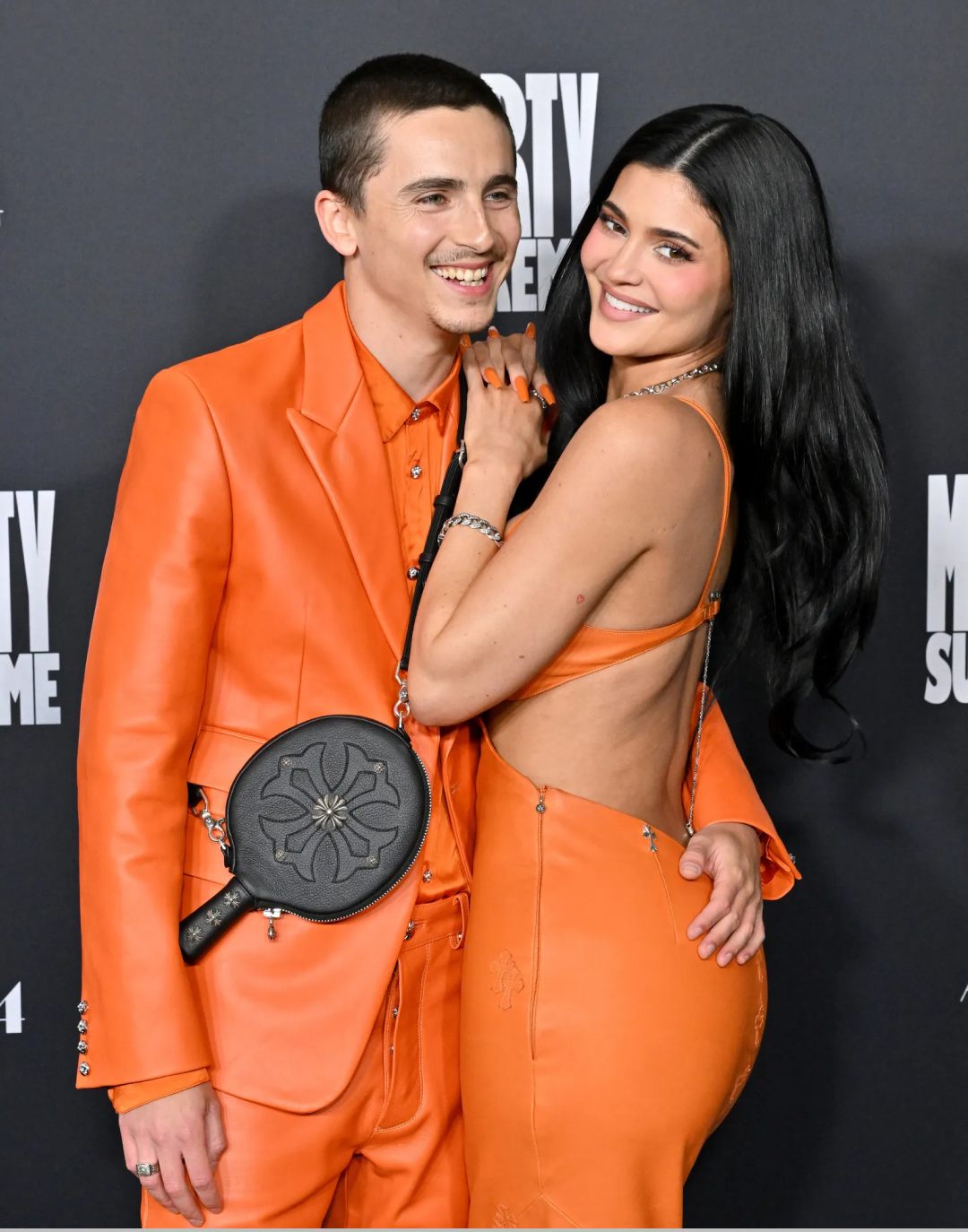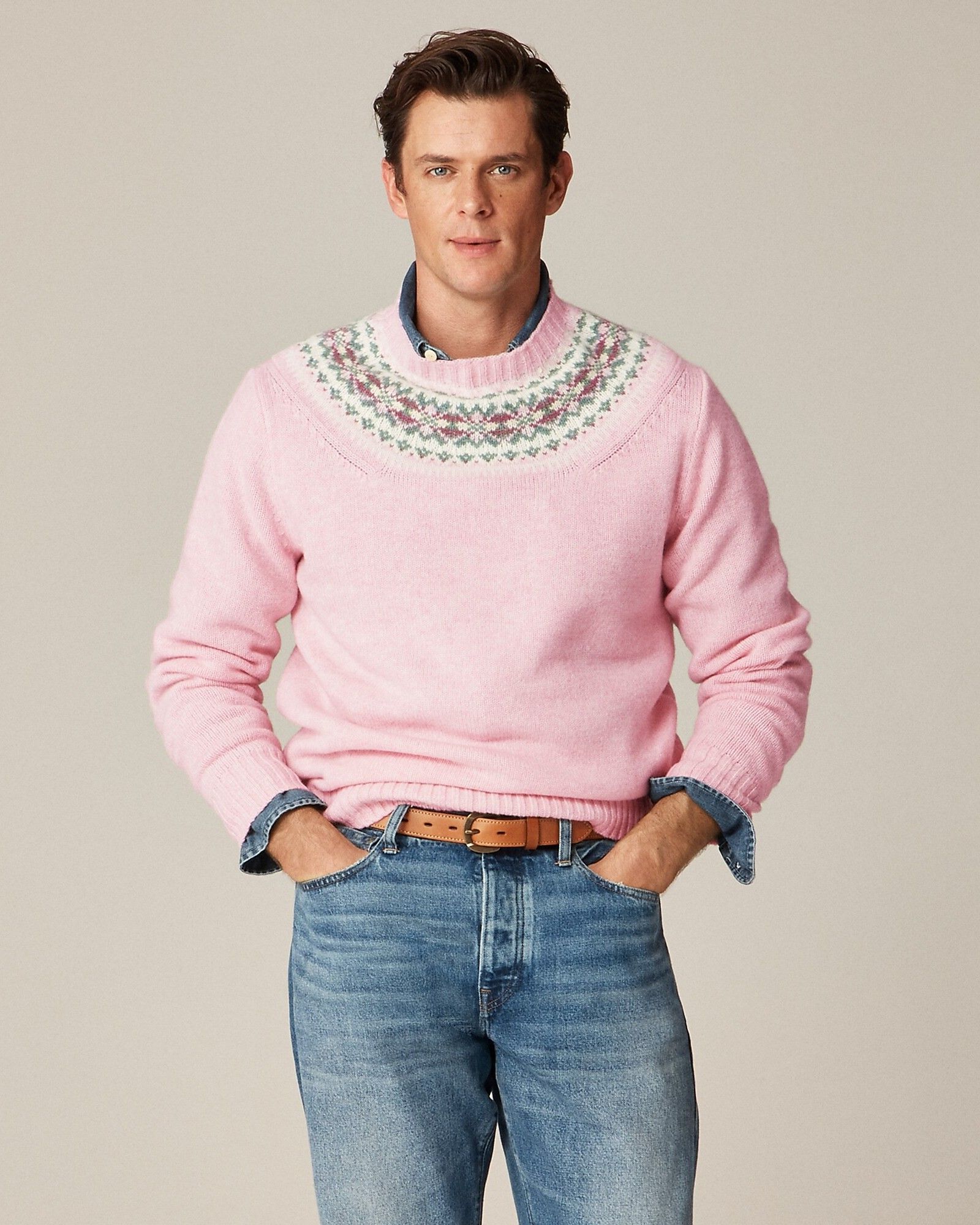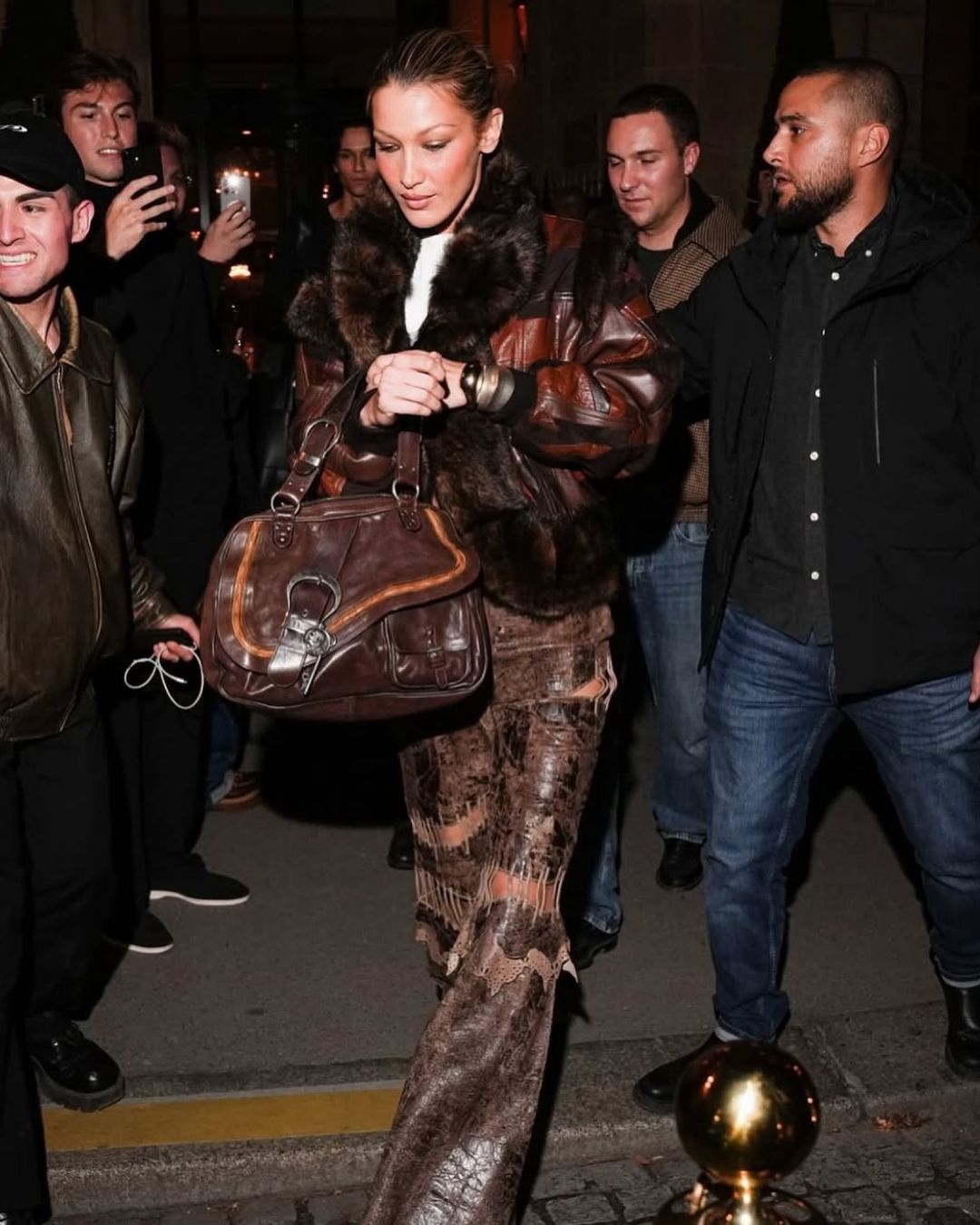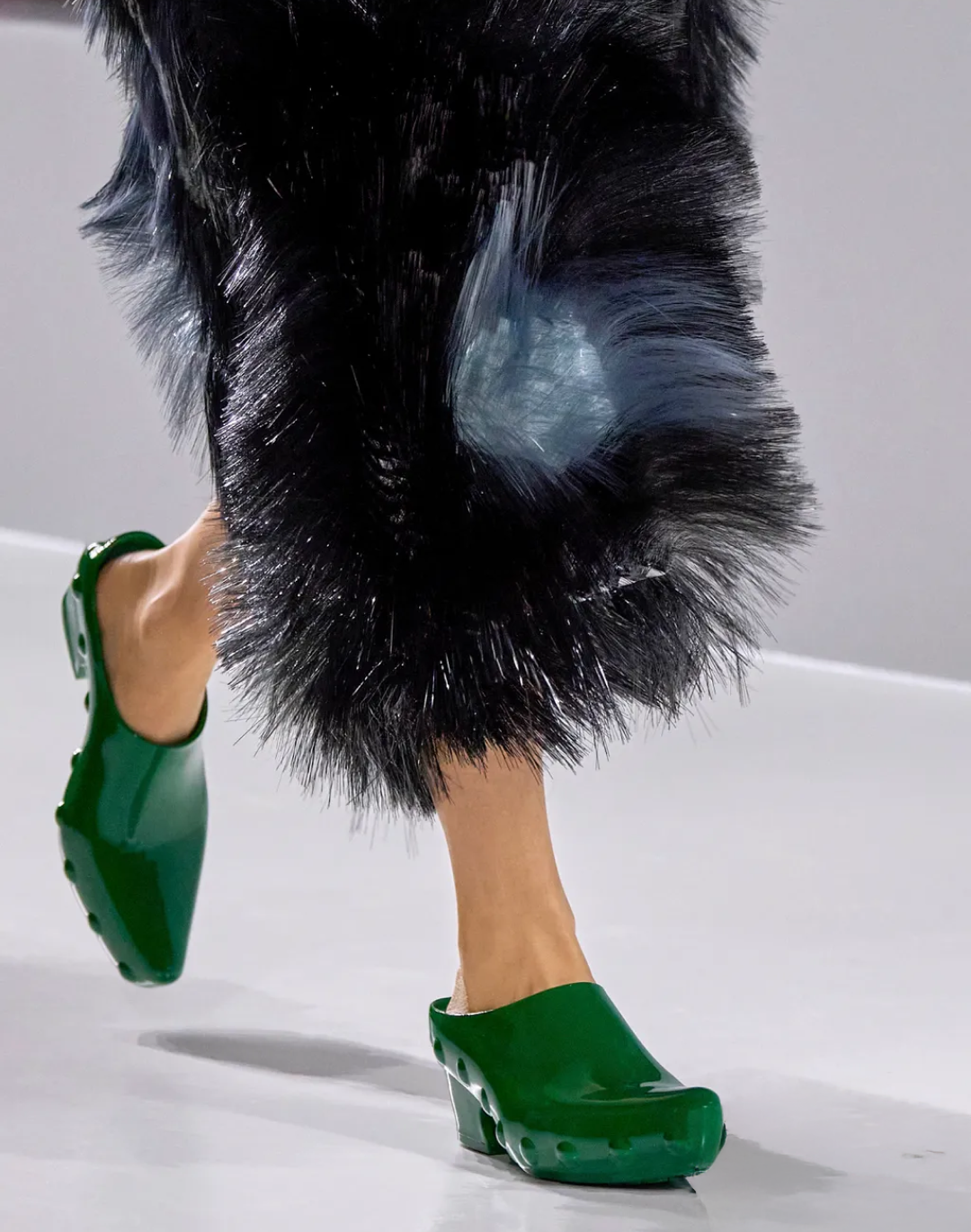
The return of the “dress over pants” trend Although so far it has only convinced celebrities and Fashion Weeks
Until now, the Y2K fashion revival hadn't yet reached perhaps the most representative trend of those years: the "dress over pants", which recalls the young stars of Disney Channel, Miley Cyrus' red carpet beginnings, or Anne Hathaway's looks after the release of The Princess Diaries. However, this trend did not escape the summer of 2024, which saw it make a comeback in both city street style and high fashion events. Among the first celebrities to bring it back was Kylie Jenner who, at Paris Fashion Week, sported a Ferragamo look pairing a red and white striped dress with fluid viscose pants. The same outfit was seen on the Parisian runways of the Spring Summer 2024 collection in shades of green, white, and black. The brand's lookbook also included a sheer white shirt-dress paired with black pants. Despite the major comeback, the "dress over pants" trend only partially revives the standards of the 2000s. Gone are the Capri leggings à la Ashley Tisdale or flare jeans of Jessica Alba, returning instead with modern silhouettes and re-proportioned volumes. For example, at the Academy Awards dinner organized by Louis Vuitton, Zendaya wore a metallic evening gown with a V-neckline along with black pants. Jennifer Lawrence also demonstrated its versatility, wearing it in both casual and formal settings. At the premiere of the film No Hard Feelings in London, the actress chose a monochromatic look by The Row, with an asymmetric dress over straight pants, while recently opting for a navy La Ligne pant paired with a semi-sheer long top for the streets of New York. Gigi Hadid followed suit, spotted in the Big Apple wearing the “Showtime” dress from her brand Guest In Residence and a pair of light denim jeans.
The origins of the trend date back to the 19th century. In her podcast "Dressed: The History of Fashion," American fashion historian Cassidy Zachary explains its controversial roots: "Around 1850 in America, women's rights activists like Amelia Jenks Bloomer and Elizabeth Cady Stanton scandalized polite society with their controversial pairing of two garments that, at the time, were distinctly associated with the two sexes." Later, with the Dress Reform in the Victorian era, which spread both in America and Europe, women's clothing began to free itself from heavy structured skirts and tight corsets that restricted breathing and compressed internal organs. "These early suffragettes adopted a calf-length dress worn over a pair of loose ‘Turkish’ style pants with the intention of offering a comfortable and practical alternative to the cumbersome floor-length skirts then in vogue,” adds Zachary. But practical reasons were not enough to justify this radical change, and the combination of pants with a skirt was perceived as a challenge to gender and social norms and customs. The women who promoted this fashion became the object of international ridicule through satirical prints, and were nicknamed "bloomers", after the activist Amelia Jenks Bloomer who promoted it in the English newspaper The Lily.
On the runways, the “dress over pants” has been reinterpreted in a wide variety of styles starting from the FW22 collections. The Hungarian brand Nanushka, for example, paired a sand-colored jumpsuit with slit pants and a grey tube skirt. Chloé played with fabric, bringing leather dresses and skirts with soft straight pants to the runway. Meanwhile, Givenchy revolutionized the pant, creating a hybrid with the high boot and pairing it with ruffled skirts and dresses, while Peter Do reclaimed the original meaning of the trend and the challenge to gender norms, extending it to men's clothing as well. The designer combined office trousers with pleated skirts, breaking down the barriers between masculine and feminine and returning the “dress over pants” to a role of subverting traditional standards. For SS24, among the protagonists are Collina Strada, with wide volumes, bright colors, and ruffles; Calcaterra with bohemian style hints and long fringes; and Proenza Schouler, with plays of transparency and net embroidery.

























































